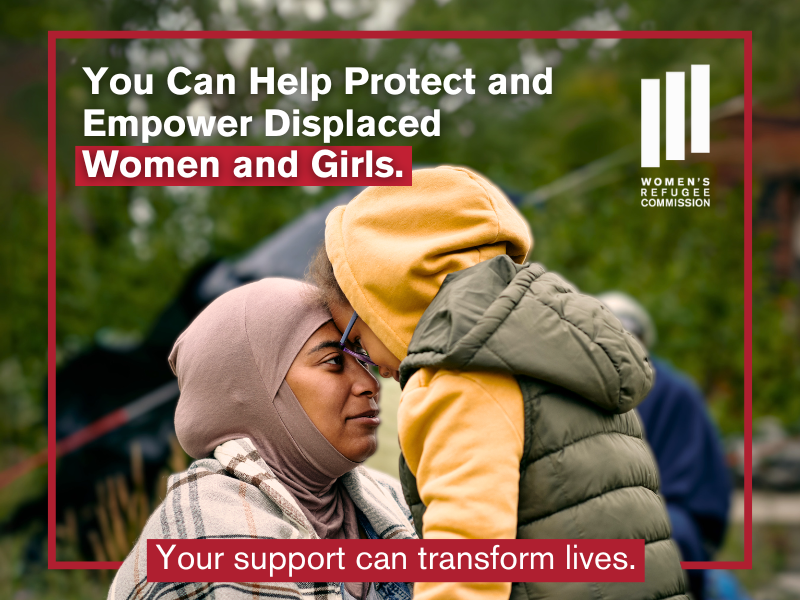Court Rules Against DHS Child Detention Policy
July 24, 2015 — Today, the Women’s Refugee Commission welcomed a long-awaited District Court ruling affirming the U.S. government’s policy of detaining children seeking asylum violates U.S. immigration custody procedures. “Today, the court made clear that the Department of Homeland Security’s policies of detaining children apprehended with their parents constitutes a clear violation of this longstanding legal settlement, said Michelle Brané, Director of the Women’s Refugee Commission’s Migrant Rights and Justice Program.
July 24, 2015 — Today, the Women’s Refugee Commission welcomed a long-awaited District Court ruling affirming the U.S. government’s policy of detaining children seeking asylum violates U.S. immigration custody procedures. The Central District Court of California found an agreement by the U.S. government in the 1997 Flores v. Meese case clearly applies to children and that current Department of Homeland Security (DHS) detention policies are in violation.
“The Flores Settlement sets clear requirements for the release of children in U.S. immigration custody,” said Michelle Brané, Director of the Women’s Refugee Commission’s Migrant Rights and Justice Program. “Today, the court made clear that the Department of Homeland Security’s policies of detaining children apprehended with their parents constitutes a clear violation of this longstanding legal settlement.
“We call on the government to immediately end the devastating policy of locking up children and their mothers,” Brané continued.
Judge Dolly Gee found the Flores Settlement, which was reached after more than a decade of litigation, clearly applies to children regardless of whether they are traveling alone or accompanied by one or both parents when apprehended. Flores directs that children generally be released from U.S. custody and clearly articulates a preference for release to a parent over another relative or community sponsor.
Flores also directs that in the rare case where a child must be detained because they pose a flight or security risk, children must be held in non-secure facilities licensed by child welfare agencies. The government had sought to modify the Flores Agreement because its new family detention facilities in Karnes County and Dilley, Texas, remain unlicensed by the state. The government further argued that detention is necessary as a deterrent for other Central American families who may seek protection in the United States. The judge denied the government’s request, and found the use of non-licensed and secure facilities a material breach of the Flores Agreement.
The judge also affirmed the plaintiffs’ contention that conditions and treatment in temporary U.S. Customs and Border Protection custody violates the Flores Settlement. Women, children, and others apprehended at the border are routinely subjected to freezing conditions, little or no access to medical care or hygiene. The court found the government has failed to meet even the minimal standards of “safe and sanitary” conditions in these facilities.
Said Brané: “The Obama Administration nearly ended family detention once before. It should never have revived this devastating practice. Yesterday’s ruling is an opportunity to uphold basic American values, restore access to protection from persecution and access to justice for the thousands of women and children fleeing violence and seeking protection at our borders. Judge Gee’s order must result in a complete dismantling of family detention once and for all.”


